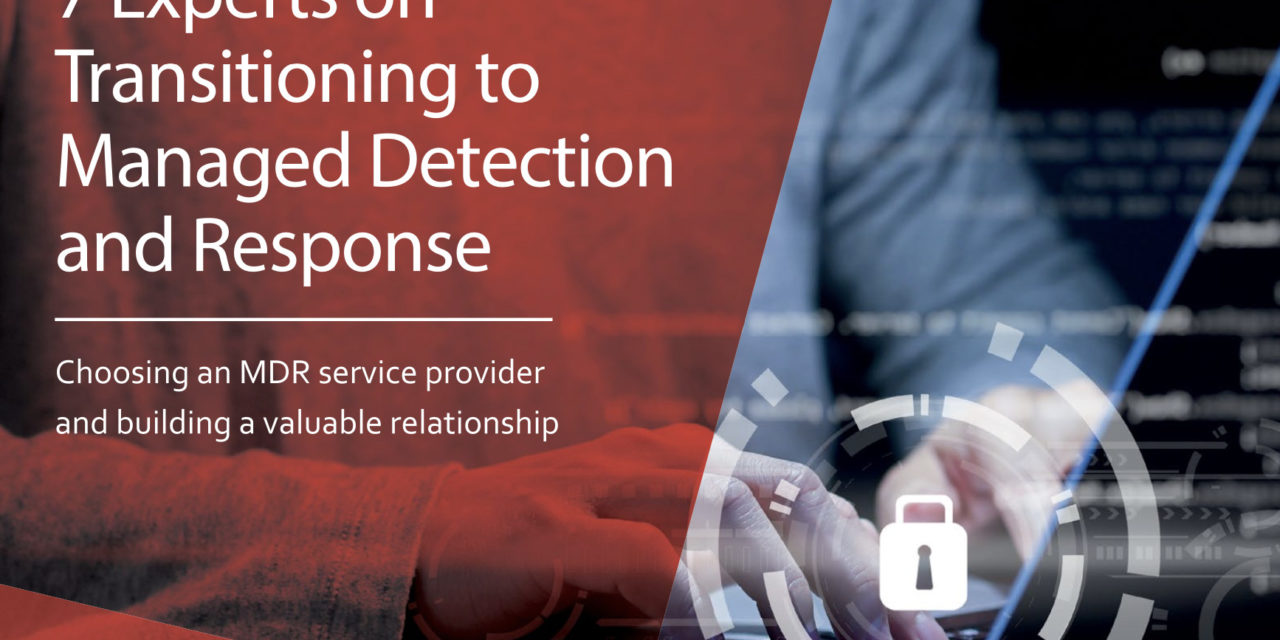The book includes insights from the following experts:
- Brian Shea, Revolution Group, Chief Information Officer and Practice Director, Technical Services, Read the article here >>
- Erica Wilson, Cass Information Systems, Vice President, Chief Information Security Officer, Read the article here >>
- Robert L. Pace, Invitation Homes, Chief Information Security Officer and Vice President, Information Security, Read the article here >>
- Anatoly Chikanov, Enel X North America, Director of Information Security, Read the article here >>
- Christopher Kozlov, Lake Forest Academy, Director of Information Technology, Read the article here >>
- Hemant Desai, CIO, Guilford County, Read the article here >>
- Scott Wood, Opis Senior Services Group, Executive Vice President/Chief Information Officer, Read the article here >>
7 Experts on Transitioning to Managed Detection and Response was generously sponsored by GoSecure.
As the saga of the 2020 SolarWinds supply chain hack unfolded, many were surprised to learn that the offending malware had been deployed more than a year before it was discovered. Dwell time was and continues to be a central issue in IT security.
For this reason, many choose a managed detection and response (MDR) solution. MDR is a security service specifically designed to rapidly detect, respond to, and mitigate cyberattacks. It is an evolutionary step in cyber security, which is more important than ever now that so many people are working remotely.
It is not always clear when a company should move to MDR or how it can get the greatest value from an MDR service. That’s why, with the generous support of GoSecure, we asked seven security experts the following question:
Based on your experience with MDR, what advice can you offer organizations trying to decide whether MDR is a good choice for them?
The experts agree that companies must first understand the gap between their current security capabilities and what they need to adequately address security risks.
Cyber security is more than simply a technology challenge. So, if you are considering an MDR solution or already work with a security provider, this ebook offers sound advice about evaluating potential MDR partners so that you can get the most out of those relationships.



